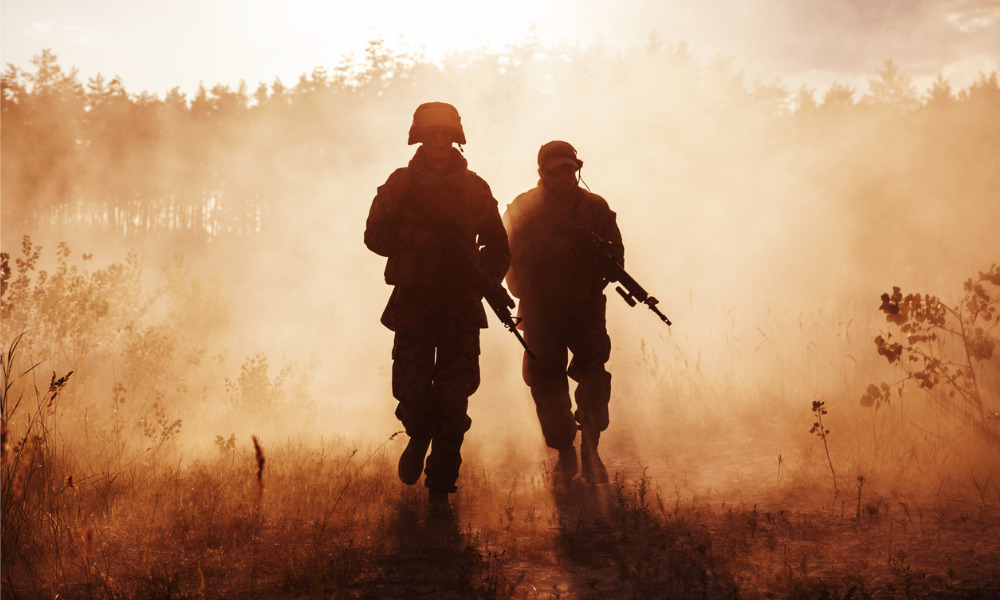
Former soldier reveals what makes a great leader

In the last 12 months, business leaders have had their fare share of uncertainty. Faced with a situation no-one could’ve predicted, they’ve had to think on their feet like never before.
Now, many would agree they’ve come out as better leaders because of it. So, what is it about pressure that makes great leaders shine?
Speaking to HRD, Tony Groves, co-founder at Halo Training, said there’s no better example of leading through adversity than those who serve in the armed forces. Dealing with rapid decision-making under enormous pressure, great leaders put their skills to the test every day.
“There's a lot of crossover from the military that applies directly to not just any team or even any leader but to people in general,” he said. “The biggest thing that was beneficial transitioning from the military to the civilian workforce was the ability to lead under real pressure.”
Having joined New Zealand’s Defence Force at the age of 17, Groves experienced his first taste of leadership while deployed in East Timor. Despite the whole team having undergone rigorous training, for the first time he saw the effect that life-or-death combat has on individuals, the team and their leaders.
Then in 2007, Groves encountered a new leader in the shape of a US Special Forces soldier while deployed in Afghanistan. From the outside, he was the stereotypical marine. But, his leadership style was like nothing Groves had ever experienced before.
“He displayed some really interesting traits, especially at that time, which were focused around things like values, empathy and humility, working on all of us as individuals but also bringing the team together,” Groves said. “With this particular leader he didn't just know the values, he lived them in everything he did on and off duty.”
The soldier commanded respect from the team from the very start, not through terror tactics, but through his leadership style. Groves said he had a “total lack of ego” – something that contrasted with the stereotype of the US marines at that time. He encouraged feedback and an open dialogue for the team to question what he was doing. He also set a high standard for how the soldiers conducted themselves with civilians, reminding them to consider the devastation they had experienced as a result of the conflict.
At that time, his approach to leadership bucked every stereotype in the book and Groves said the feeling of positivity it brought to the team was palpable. By living the values he wanted to see in his own reports, the team stepped up to the plate too.
“He would never ask us to do anything that he couldn't do himself,” Groves said. “If we were going out on a typical mission, he would come along, not as the leader or someone with responsibility, but just to make sure that he stayed in tune with what was happening on the ground. He'd carry the gear that we were carrying, follow the instructions of the person in charge, and he'd be there as the lowest in the team.”
Groves said experiencing this type of leadership was pivotal for him, and after his 18-year career in the Defence Force, it inspired him to co-found Halo Training. Taking the skills and experiences learnt on the battlefield, Halo Training programs teach people how to lead with humility and thrive under pressure.
Read more: Ex Westpac CEO Brian Hartzer on life’s leadership lessons
This ability to keep calm in a crisis has proved vital in the last year. The everchanging nature of the pandemic has kept business leaders on their toes, separating those who can handle adversity and those who have cracked under the pressure. But Groves said the ability to deal with uncertainty is not necessarily inherent.
Another leader Groves worked with in Iraq admitted that staying calm and level-headed in the face of danger was not something that came naturally. It was a skill he worked at continuously.
As businesses look to recover from the pandemic, this ability to react and adapt to the changing conditions will continue to be a key leadership skill. The economic impact of COVID-19 is far from over and Groves said business leaders should continue to show empathy and humility as they navigate the next 12 months.
“Adversity comes in many different forms and of course not everybody's going to experience working in a warzone,” he said. “But it doesn't matter how that adversity comes, you still feel the same effects of it, just at a different level, so it’s important to be prepared for whatever lies ahead.”